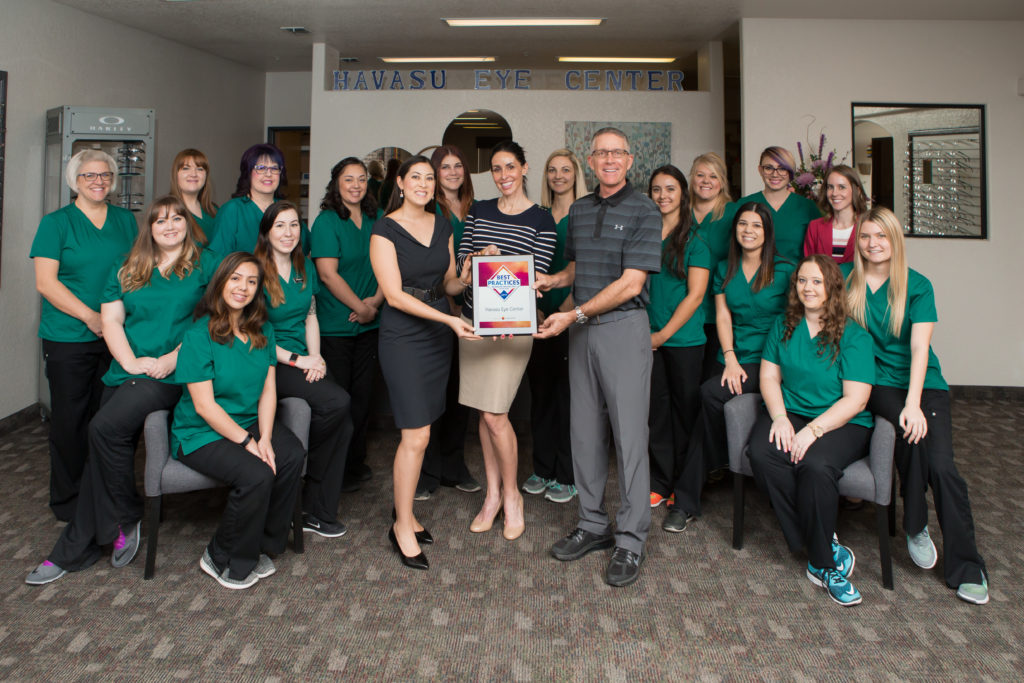By Stephanie Woo, OD, FAAO, FSLS

July 10, 2019
Your ability to hire the employees your patients and business need will determine whether your practice succeeds or fails. A staff that provides sub-par service, and is unable to adequately support the doctors, will sink your patient care and profitability. Here’s how my practice ensures our staff is comprised of just the people our patients need.
Advertise to Recruit in Both Old & New Media
We use both social media and older media, like print newspapers, to look for applicants for open positions.
Using Facebook, at a cost of $200 for a paid post, resulted in about 40 resumes dropped off in two weeks. In addition to social media, we sometimes post ads to online job search sites like Indeed, where the cost is around $100 per week. It is online job search sites that have generated the greatest response in resumes for us, sometimes resulting in more than 50 being sent to us from just one post.
In the local newspaper, we sometimes place ads at around $100 per week. The response to newspaper isn’t as great as online job search sites, but it allows us to ensure we are reaching out to the widest swath of candidates, including those who are older and more experienced.
Editor’s Note: Another resource is Local Eye Site, a search site specifically designed for eyecare professionals.

Dr. Woo’s staff assemble for a group photo. Dr. Woo takes a careful and systematic approach to hiring.
Keys to Weeding Through a Stack of Resumes
We start contacting candidates right away if we feel they have a good resume. We don’t wait until we have accumulated a certain amount before contacting good candidates.
First, we make sure that there are no typos in the resume and that the grammar is correct. Any resumes that are poorly written get discarded right away, because a person with a sloppy resume is lacking in attention to detail. Some of the other points we examine:
Where has the employee worked before, and how many jobs have they had? We generally like to hire employees without any optometric experience, so we can train them in exactly how we want things done. Also, if they have had multiple jobs within the past few years, this could indicate an unstable employee, which is off-putting both to us and our patients.
References. We contact the potential candidates’ references before we even contact the applicants to gauge what kind of person they are, along with their good and bad traits.
Characteristics. Sometimes a prospective employee lists what they perceive as their best characteristics in their cover letter or resume. The positive characteristics that get our attention: That they describe themselves as motivated, energetic, honest and a team player.
Consider Delegating Earliest Stages of Recruitment Process
We have an office manager who receives all of the applications, calls on references and schedules the first interview. If she feels the candidate is a good potential employee, she will schedule another meeting with one, or both, of the partner ODs.
Other Articles to Explore
Important Questions to Ask in First Interview
We always schedule a face-to-face interview with good candidates, rather than first doing phone interviews. Some of the questions we like to ask include:
Can you tell us about yourself and your past employment history?
What are some of your best traits?
What are some traits you would like to work on or improve?
If we asked your best friend three things to describe you, what would they say?
What is your availability like? What are your salary requirements? What are your personal and career goals?
Editor’s Note: It’s best to review all interview questions with an attorney before making them part of your recruitment process.
Digging Deep: Personal Characteristics & Employment History
The first interview is usually done with the office manager alone, or with another seasoned employee. Usually we are asking questions to find out more about the employee’s personality and employment characteristics.
If the candidate comes back for a second interview, it is typically with one of our doctors, who usually wants to find out more about their personality, and to see if they would mesh well with the staff and the other doctors.
The doctors usually ask questions about what the candidate likes to do for fun when they are not working, taking note of personal interests and challenges. This gives insights as to what the person values and enjoys, and makes it easier to determine if they would be a good fit.
Good & Bad Signs
When we ask candidates about what traits they need improvement on, and they say “nothing,” that is a bad sign. Everyone has good and poor qualities, so if someone is not able to recognize their faults, this could indicate a self-absorbed personality, who is not able to think of themselves from others’ perspectives.
We also ask the candidate about criticism. If they do not take criticism well, they will not fit into our family. We ask them about their availability, and if they are not available most of the time that we are open, that will also not be a good fit.
It is illegal to ask about a candidate’s marital status, or if they have children. However, it’s smart to keep your ears pricked for information volunteered by the candidate that they have family, or personal life, obligations that may interfere with their ability to serve your practice.
For example, they might note that they have to end the interview at a particular time because they have to rush home to meet relieve a friend who is watching their children, or they might mention in the course of small talk that they have been busy juggling their own responsibilities with caring for an elderly parent or a young child. Any sign that the employee has a personal-life challenge that could interfere with getting to work on time, and giving us their undivided attention, is a big red flag.
While it is illegal to ask questions about a candidate’s family circumstances, and other personal challenges, you can make a mental note of any information they volunteer on their own that makes you think they may not be able to meet the job’s requirements.
Important Non-Verbal Cues
Good eye contact is huge. We want to make sure the candidate is professional, courteous and confident. Appearance is also big – if they show up for their interview in shorts and flip flops, that indicates they do not view this job as taking place in a professional setting, and for that reason alone, they would not be a good fit.
We also observe their body language – do they sit up straight? Do they smile when they talk? What kind of energy do they emit? All are important.
Mastering the Art of the Salary Conversation
We do not advertise the salary because it all depends on experience and what we feel the employee is worth. We usually ask candidates what they are looking for in salary during the first interview. If they are want a salary that is a lot higher than we can afford to pay, we do not take the process further.
After their second interview with the doctor, the office manager and doctors discuss the candidate, and we all chime in on what we think we should offer them. Then, the manager contacts the candidate, offers them the position, along with a salary that is line to what they told us in their interview would be acceptable to them.
 Stephanie Woo, OD, FAAO, FSLS, practices with the Contact Lens Institute of Nevada.
Stephanie Woo, OD, FAAO, FSLS, practices with the Contact Lens Institute of Nevada.





















